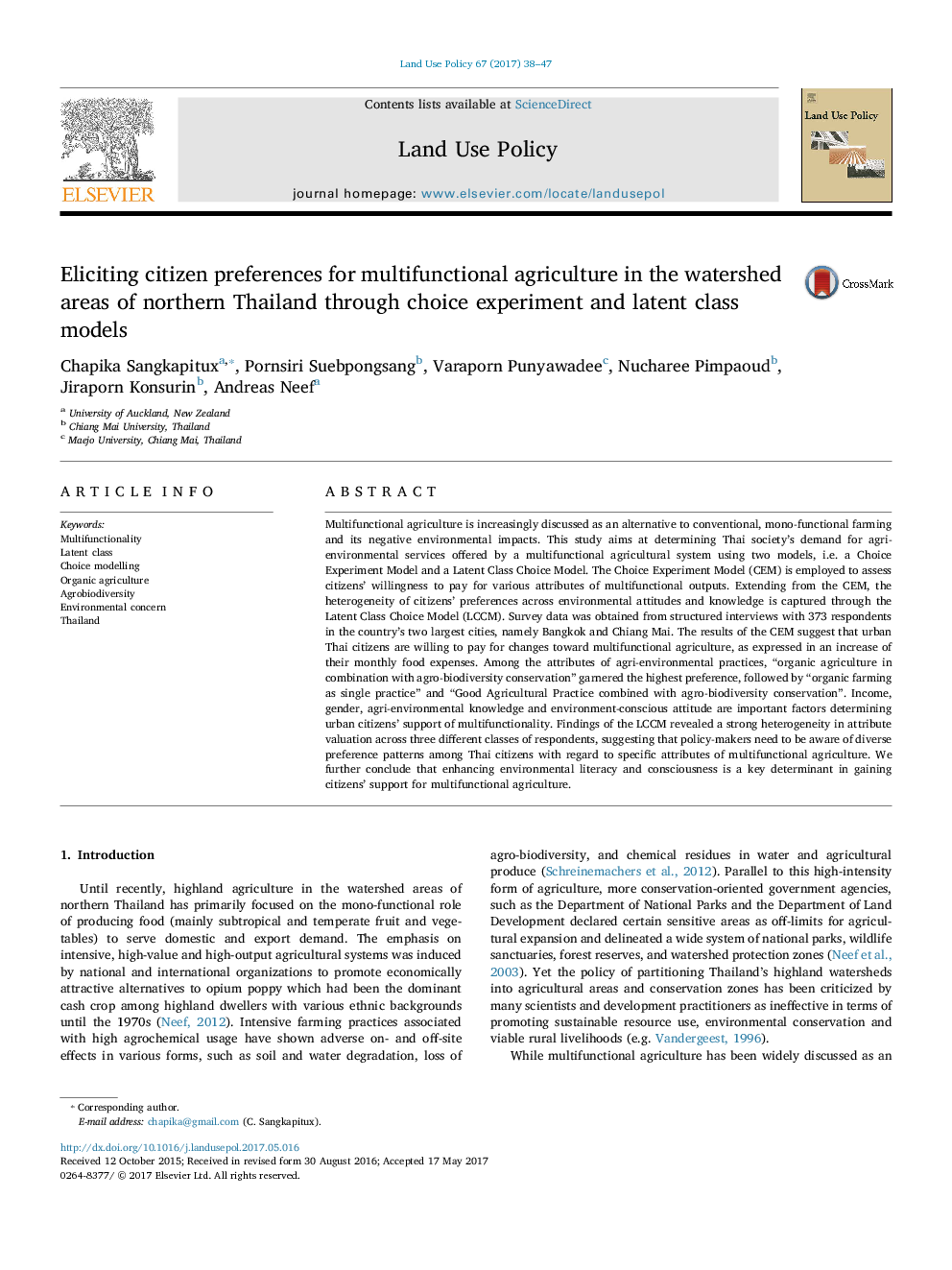ترجمه فارسی عنوان مقاله
اصلاح ترجیحات شهروندی برای کشاورزی چند منظوره در مناطق حوزه شمال تایلند از طریق آزمایش انتخابی و مدل کلاس های پنهان
عنوان انگلیسی
Eliciting citizen preferences for multifunctional agriculture in the watershed areas of northern Thailand through choice experiment and latent class models
| کد مقاله | سال انتشار | تعداد صفحات مقاله انگلیسی |
|---|---|---|
| 160072 | 2017 | 10 صفحه PDF |
منبع

Publisher : Elsevier - Science Direct (الزویر - ساینس دایرکت)
Journal : Land Use Policy, Volume 67, September 2017, Pages 38-47
ترجمه کلمات کلیدی
چند منظوره، کلاس خاموش مدل سازی انتخابی، کشاورزی ارگانیک، تنوع زیستی، نگرانی محیط زیست، تایلند،
کلمات کلیدی انگلیسی
Multifunctionality; Latent class; Choice modelling; Organic agriculture; Agrobiodiversity; Environmental concern; Thailand;

